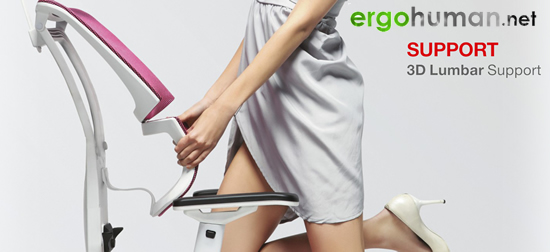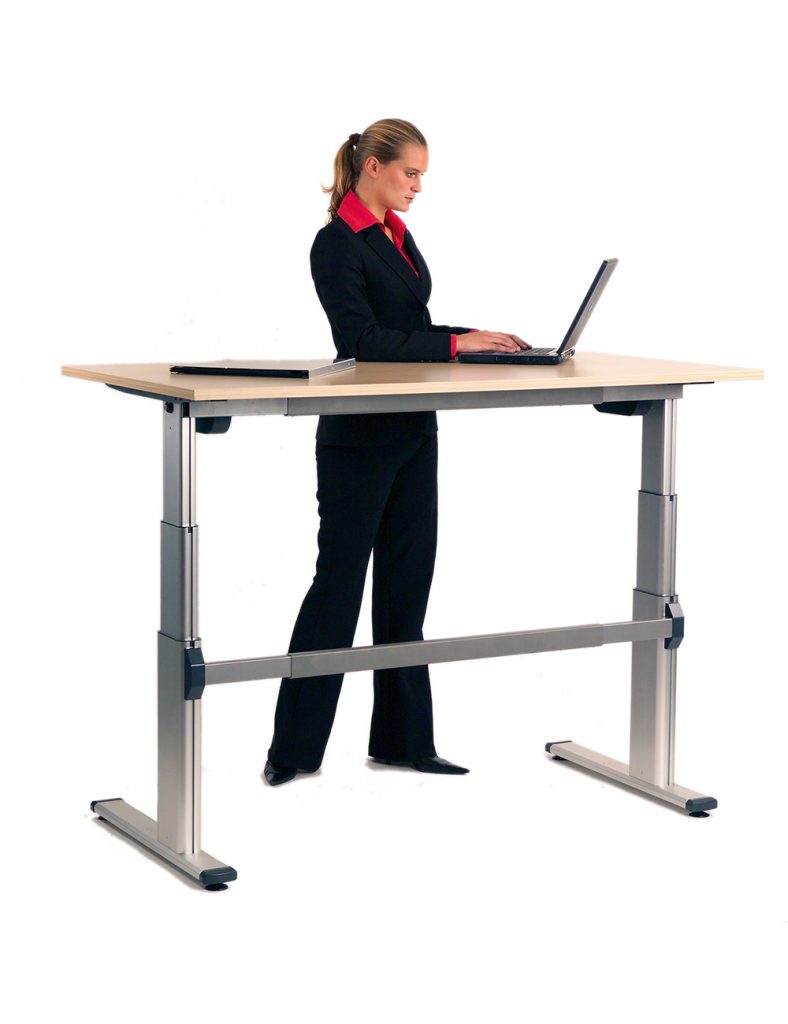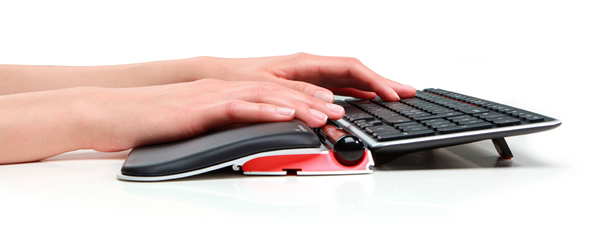Ergonomics is about getting the situation to fit you, rather than you to fit the situation. So, for example, when looking at an ergonomic chair, getting the chair to fit you would mean addressing points such as your height, your size and your job duties.
Your height is an important point to address, as a perfect sitting position will mean that your feet are flat on the floor, while your thighs are more or less parallel to the floor. It is easy to see that if your chair is too low for you, your knees will be coming up to meet you and there will be less support to your lumbar region, as your thighs are not making perfect contact with the office chair. If the chair is too high for you, your feet may not fully touch the floor, making steadiness an issue. A ergonomic height-adjustable chair will help solve these needs.
If you are small in stature, or somewhat overweight, the armrests of the chair may not serve their purpose of supporting your lower arms, again to keep them parallel to the floor and resting on the desk comfortably.
Once the ergonomic office chair is adjusted to your needs, you can identify whether the desk height meets your specifications. It’s all right getting the seat absolutely perfect but is the table or desk too high or too low for your wrists to rest comfortably near the keyboard or the paperwork?


This is where electric height adjustable desks show their worth. As the name suggests, a electric height-adjustable desk will allow you to get the correct height for your perfect workstation.
The theory of ergonomics also addresses a cognitive aspect. For example, why did you place your phone to the left of your monitor and why so far back on the desk? If it’s an office tool that you use quite often, is it in a comfortable and accessible position? Why isn’t the monitor directly in front of you? Regular use of the computer will mean that your body rests in a twisted position (neck and hips) for long periods of time. The placing a heavy dictionary at the back of the desk, instead of closer at hand, will cause pressure to your hand, wrist, arm and shoulder, every time you reach for it.

Ergonomics is a serious business which, once you’ve got it right, encourages your body to respect good posture. An ergonomic desk and adjustable ergonomic chair might cost a little more than run-of-the-mill office furniture but for all the right reasons. Surveys have shown that working in an ergonomic environment increases productivity by as much as 20%, the enhanced posture having the knock-on effect of increasing work satisfaction. With less posture-related illnesses and the resulting time off work, creating an ergonomic office ticks all the right boxes.
